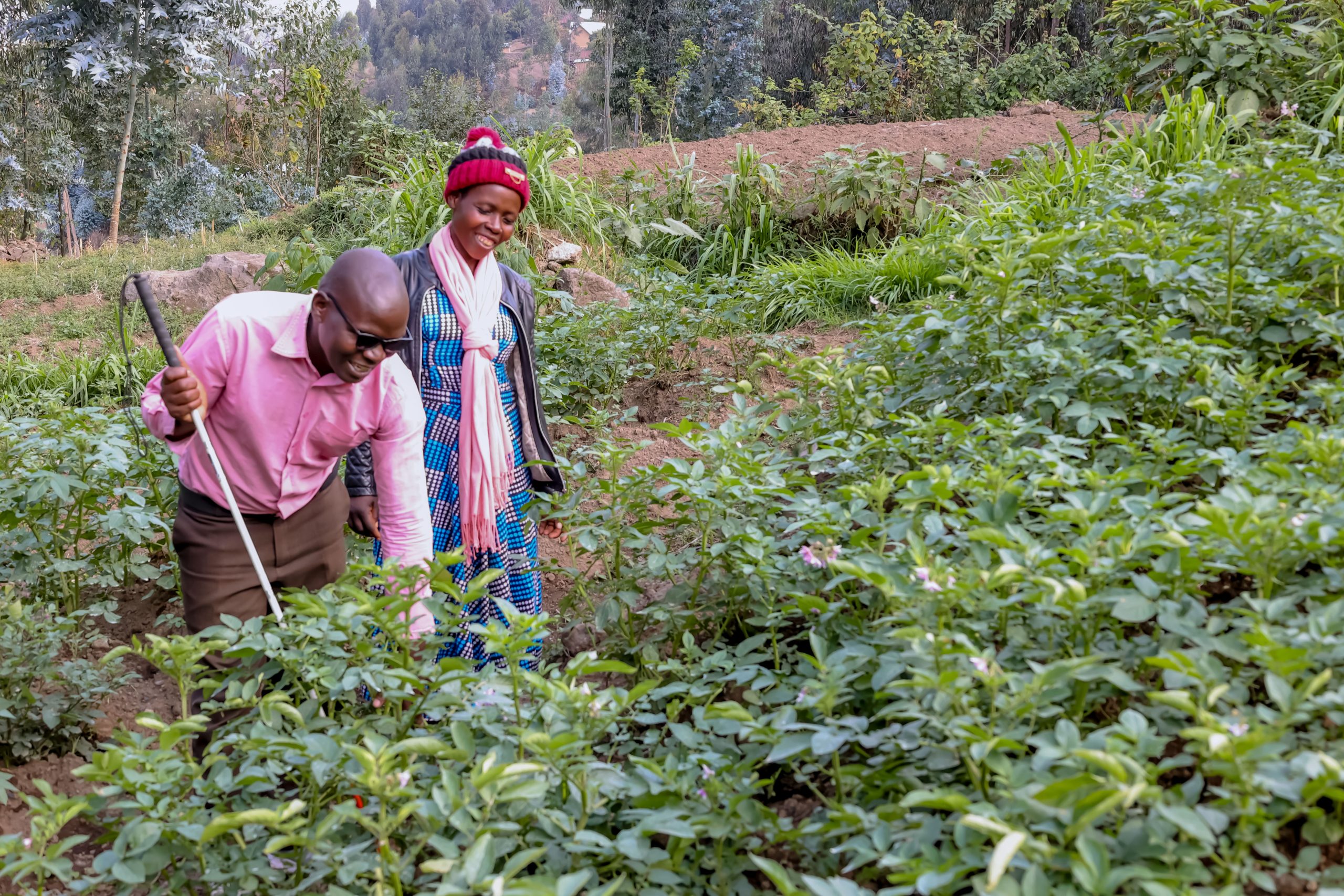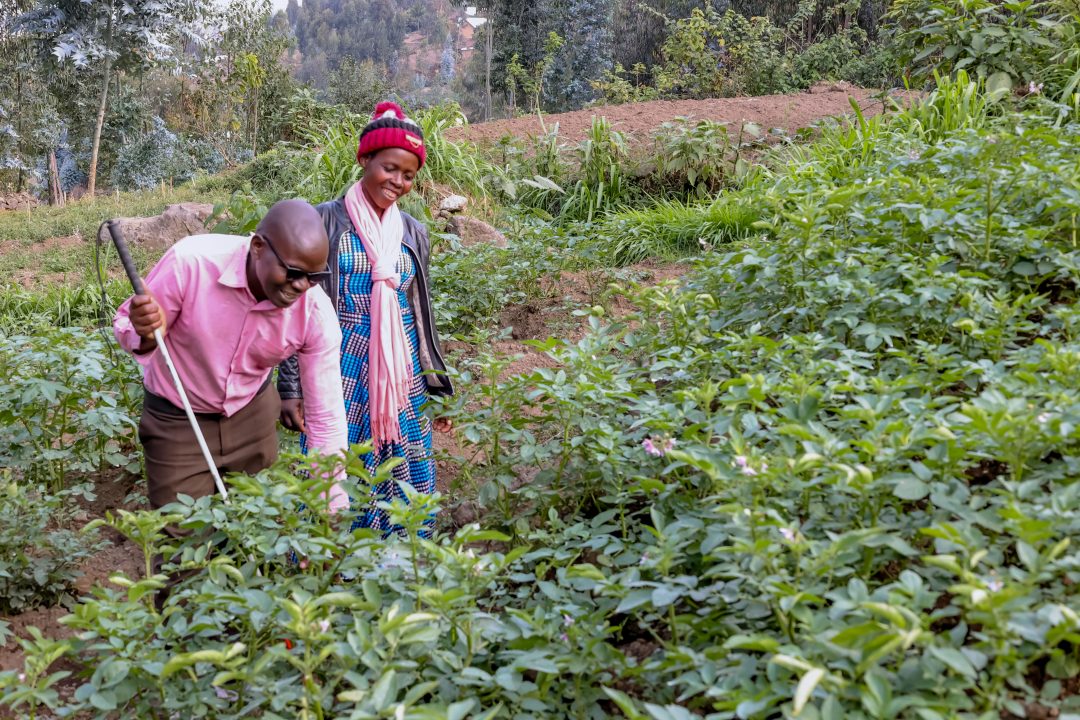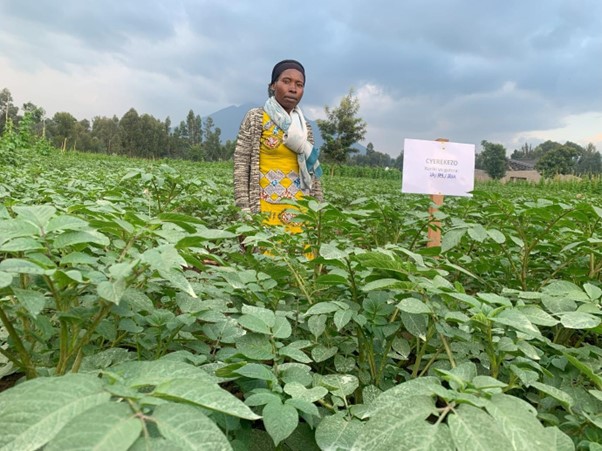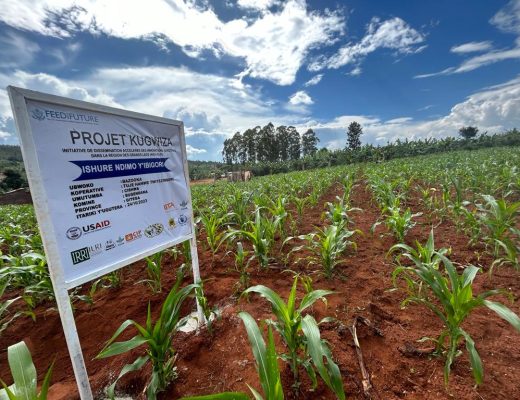In Rwanda, AID-I GLR focuses on empowering farmers by exposing them to new and improved seed varieties, good agronomic practices and complementary agricultural services and advisories through partnerships with private-sector actors, government agencies, and non-government organizations. The initiative connects farmers to innovators and providers of these technologies. By so doing, farmers can directly demand and access technologies, once they are convinced of their effectiveness.
A key approach for AID-I GLR is establishing partnerships with seed companies and enablers such as Kilimo General Business (KGB) and the Seed Potato Fund (SPF). These scaling partners play a critical role in producing and distributing improved seeds while managing demonstration plots that serve as training grounds for farmers. These plots showcase best agronomic practices, allowing farmers to see firsthand the benefits of improved seed varieties and modern farming techniques.
Christine Musabimana, a farmer in Muko Sector, Musanze District, has witnessed the life-changing impact of improved seeds. Initially renting her land to KGB, Christine became curious about KGB’s MUH 501 hybrid maize seeds. In the 2023B season, she decided to experiment by planting just 100 grams of these seeds on a plot of 40 square meters. To her astonishment, she harvested 45 kilos—far exceeding the 13 kilos she previously got from the same plot.
Inspired, Christine expanded her farming area in season 2024A to half a kilo of hybrid maize seeds on a larger plot. The yield multiplied tenfold to 200 kilos compared to her previous 20 kilos. “The maize was also large and tasty,” she added. Christine has now switched seeds, purchasing early to guarantee she secures her preferred MUH 501 variety. “If I harvested 200 kilos from half a kilo, imagine what I could get from five kilos? It would be in tons!” she exclaimed.
Her success is mirrored by other farmers, like Jean Damascene Sinzabaheza, a visually impaired farmer. Starting with 10 kilos of kazeneza potato seed from Seed Potato Fund (SPF) – an AID-I GLR scaling partner – in season 2023B, he harvested 120 kilos. Emboldened, Jean Damascene then reinvested in 200 kilos, eventually harvesting up to 2 tons. For him, and beyond yields, this was greatly significant at several levels “I earned 1,200,000 [Rwandan] Francs from the harvest, proving our abilities, even as visually impaired,” he reflected.

Jean Damascene, a visually impaired farmer, and his wife in their potato field, where they have planted a new high-yielding variety of potato seeds.
Similarly, Clementine Mukeshimana, a 23-year-old farmer, saw her yield increase from 60 kilos to 115 kilos after planting ndamira potato seed, one of the new and improved potato seeds promoted under AID-I GLR project, on a 1,500 square-meter plot in season 2023B. The proceeds allowed her to buy livestock, further improving her livelihood and diversifying her farming.
The AID-I GLR project’s strategy revolves around empowering farmers with knowledge. Central to this approach are demonstration plots managed by partners like KGB and SPF. These plots act as ‘open classrooms,’ teaching farmers about proper land preparation, planting techniques, fertilizer application, and pest control. To encourage adoption, small seed packs are distributed to farmers, allowing them to test high-yielding varieties on their own land.
KGB’s managing director, François Nsengiyumva, highlights the project’s impact on productivity. “Our high-quality seeds mature in four-and-a-half months and yield up to 12 tons per hectare – far better than the previous varieties that took seven months and yielded only seven tons,” he explained.
Through collaboration with the Alliance for a Green Revolution in Africa (AGRA) and CGIAR centers, AID-I GLR enhances agricultural productivity and promotes sustainability and nutrition.
By integrating improved seeds with training on good agricultural practices and nutrition education, the project ensures that the benefits of agricultural innovation extend to household well-being.
Community cooking demonstrations complement these efforts and emphasize the importance of a balanced diet to cement and complete the plot-to-plate loop.




No Comments